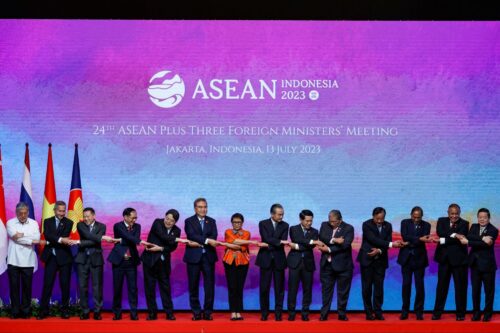Australian wine and coal fall victim to souring of ties with China
Coal and wine exporters are feeling the chill from Canberra’s frosty relationship with Beijing. Australian companies that depend on China should all take note: The go-go years are over.

China’s spat with Australia has intensified again: Beijing has hit wine from Down Under with tariffs that will double or triple its price, making the market “unviable” for Australian exporters according to Australia’s trade minister, Simon Birmingham, per the Guardian:
“This is a devastating blow to those businesses who trade with China in the wine industry…It will render unviable for many businesses their wine trade with China. And clearly, we think it’s unjustified, and without evidence to back it up,” he said.
- Chinese officials have been mooting tariffs on Australian wine since May; an antidumping investigation was announced in August.
- The “temporary” tariffs, ostensibly in retaliation for “dumping,” are from 107% to 212%, and take effect from tomorrow, November 28, with no fixed end date.
- Nearly 40% of Australia’s exported wine goes to China, worth $800 million a year.
Meanwhile, about 5.7 million tons of coal worth more than $500 million is stuck on ships anchored off Chinese ports, waiting for word from Chinese customs authorities.
- “A total of 66 vessels loaded with Australian coal are positioned in Chinese waters,” according to shipping data analyzed by Bloomberg.
- China’s Foreign Ministry blamed the delays in accepting Australian coal on “quality, safety and environmental inspections.”
- Meanwhile, “China is paying through the nose for coal from North America” to “snub Aussie coal.”
Why is Beijing targeting Australia?
The dispute between Beijing and Canberra has been brewing for some time. Against a backdrop of growing scrutiny of China’s business and political activities in Australia, the government of Prime Minister Scott Morrison has also offended Beijing in many ways, which were made explicit by a list of the 14 sins of Australia shared by the Chinese embassy in Canberra. Beijing’s list includes:
- Australian media and think tank reporting on China.
- Federal government attempts “to torpedo” the state of Victoria’s Belt and Road deal.
- Canberra calling for an international investigation into the origins of COVID-19.
- “Interference in China’s Xinjiang, Hong Kong and Taiwan affairs.”
- “Thinly veiled allegations against China on cyber attacks without any evidence.”






